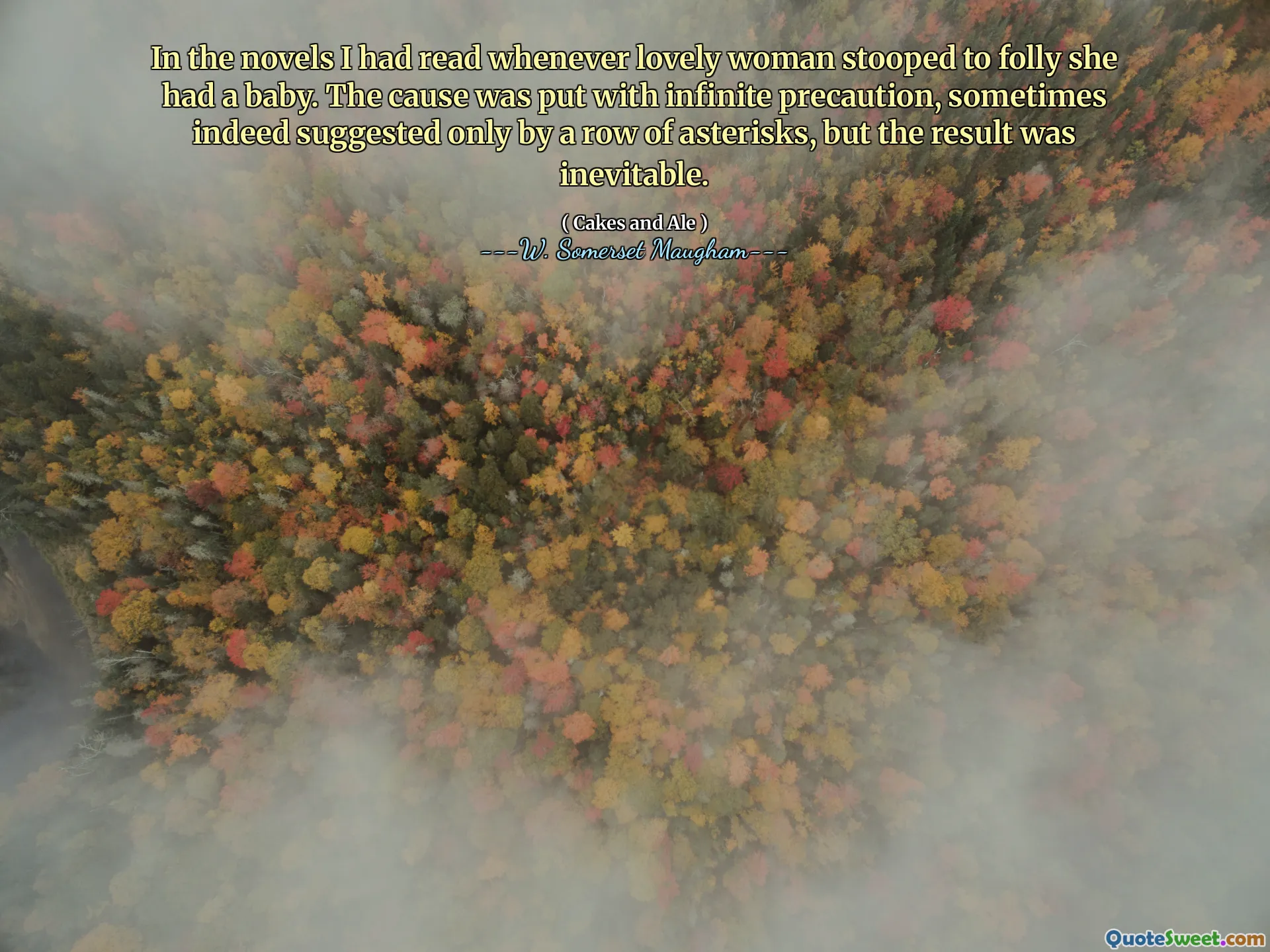
In the novels I had read whenever lovely woman stooped to folly she had a baby. The cause was put with infinite precaution, sometimes indeed suggested only by a row of asterisks, but the result was inevitable.
This quote reveals a critical perspective on the portrayal of women's fallibility in literature, highlighting the tendency to link moral or social failings directly to pregnancy or childbirth as an inevitable consequence. It underscores a recurring narrative trope where women’s mistakes—whether moral lapses or personal errors—are sanitized or rationalized through the eventual outcome of motherhood, sometimes as a form of moral reckonings or storytelling convenience. The author's tone suggests a degree of skepticism or sarcasm toward such representations, implying that these narratives often oversimplify complex realities by reducing women's actions to the inevitability of pregnancy. This viewpoint invites reflection on how societal and literary conventions shape perceptions of gender roles, often reinforcing stereotypical or dismissive attitudes about women’s choices and agency. In literature, especially in older works, this trope subtly perpetuates the idea that a woman's value or identity is intrinsically tied to motherhood, either as a moral lesson or social commentary. It also exposes a tendency to avoid directly addressing the causes of female folly, opting instead for a convenient, implicit explanation—highlighted by the use of asterisks—indicating perhaps censorship, euphemism, or avoidance of controversy. Such portrayals can influence societal attitudes, reinforcing the idea that women's mistakes are inextricably linked to their reproductive role, thus affecting cultural perceptions and gender dynamics. Recognizing this pattern encourages a more nuanced appreciation of female characters and authors’ intentions to either challenge or reinforce these stereotypes in their works.







